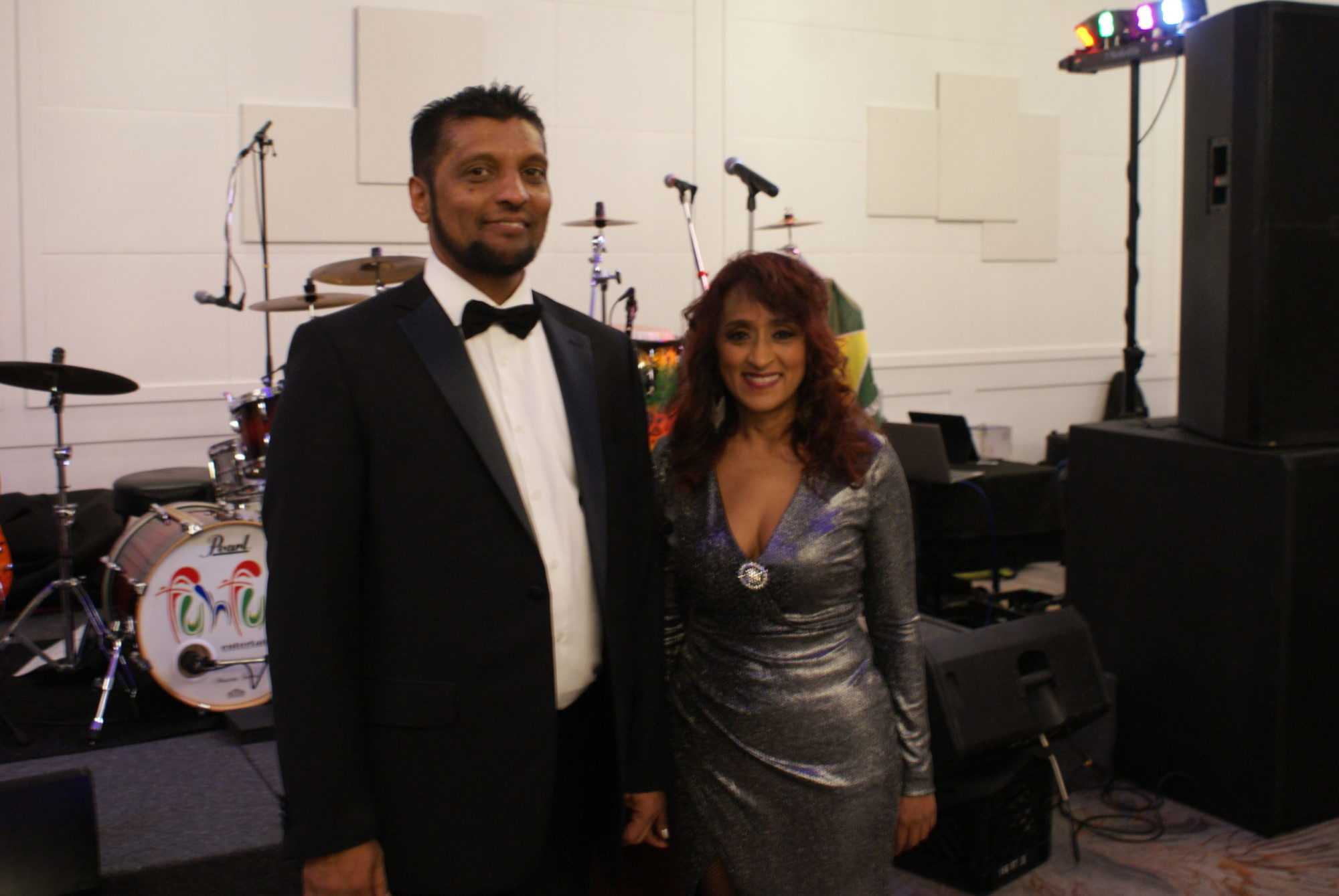on
BY SIMONE J. SMITH
On Saturday, November 23rd, 2019, Toronto Caribbean Newspaper was invited to the Second Annual Black and White Affair also known as Brown Sugar, an event hosted by One Love Media, and their amazing team that consists of: the handsome host Habeeb Alli, the sensational Sherry Itwaru, the dedicated Fazil Hussain, and the beautiful Bibi Mohamed.
This year’s fundraiser is a continuation of their consistent aid for Skeldon Guyana; around this time last year, many families were shocked when they were handed severance notices. It was devastating because it was around the holiday season, and no plan had been laid out regarding the future of the workers, their families, their communities, and the wider economy of Guyana.
According to an article found in Stabroek News (June 3rd, 2019), Guyana’s economy has revolved around sugar since 1815. Since then, the wages coming from sugar workers has always been important to the survival of the community. The sugar estates have been instrumental in sustaining the Guyanese economy, and has been a dynamic assistant to other industries including: ice sellers, flutie producers, hairdressers, farmers, the haberdashers, the mechanics, and fishermen.
In 2017, Agricultural Minister Noel Holder announced that the government had started the process of soliciting Expressions of Interest for the divestment of the Skeldon Sugar Factory because GuySuCo could not afford the amount of money needed to repair the facility, and some say that this decision has disrupted the micro economy of the working people, and has affected major sections of the country.
Thousands of laid-off sugar workers continue to struggle, and the worst part about it is that the families and children are now a part of the demoralizing ripple effect. Habeeb Alli, an interfaith Chaplain and author has worked on many poverty alleviation programs and fundraisers in the past, and his dedication to his homeland remains. He believes in the principles of human dignity, self-reliance, and justice for all, and aims to lend a hand whenever possible to ensure that all humans regardless of race, religion, or creeds are treated fairly and with compassion.
This year’s Brown Sugar fundraiser was dedicated to the laid off sugar worker’s children in Skeldon Guyana, to help them continue their education. It was sad to learn last night that there are still children who do not have there daily food needs met; since February 2018, Service to Humanity has been supporting families in Guyana who have been affected by the sugar layoff’s by serving over 20,000 hot meals to the students, providing scholarships to underprivileged students, and distributing hundreds of school backpacks.
Habeeb and his team have always found creative ways to fundraise, and this year was unique. In place of raffle tickets, they held a silent auction with items ranging from jewellery to artwork. It was wonderful to see the Guyanese community out in full force, ready with open wallets and open hearts. During dinner the Fuh-Fuh Band, and the styling of Dj Arjune, MC Karran Singh and Joel Davis entertained us, and of course after everyone’s belly was full, the dance floor was filled with joyous laughter, soca sounds, reggae, and chutney.
Indeed, it is a sad time for many families in Guyana to be without a steady income, especially because it is the holiday season and it would be nice to have the extra money to celebrate the season with those near and dear. The community is thankful for people like Habeeb Alli and his team who are able to think outside of themselves, and support those who are out of sight, but not out of mind. If you would like to support Service to Humanity with a donation to assist families of laid off sugar workers in Guyana, you can visit them on Facebook at Service To Humanity; today’s Children Our Future, and take a look at what they are doing. Everyone deserves to be happy during the Christmas holidays and we can all find ways to do our part for the global community.
Stay in the loop with exclusive news, stories, and insights—delivered straight to your inbox. No fluff, just real content that matters. Sign up today!
We, as humans are guaranteed certain things in life: stressors, taxes, bills and death are the first thoughts that pop to mind. It is not uncommon that many people find a hard time dealing with these daily life stressors, and at times will find themselves losing control over their lives. Simone Jennifer Smith’s great passion is using the gifts that have been given to her, to help educate her clients on how to live meaningful lives. The Hear to Help Team consists of powerfully motivated individuals, who like Simone, see that there is a need in this world; a need for real connection. As the founder and Director of Hear 2 Help, Simone leads a team that goes out into the community day to day, servicing families with their educational, legal and mental health needs.Her dedication shows in her Toronto Caribbean newspaper articles, and in her role as a host on the TCN TV Network.













